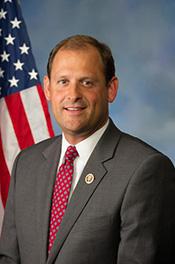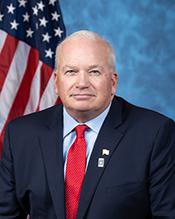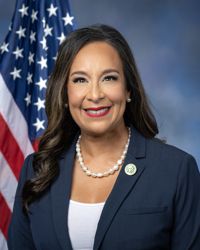0
Increasing Financial Regulatory Accountability and Transparency Act
1/11/2025, 4:06 PM
Summary of Bill HR 3556
The main provisions of the bill include requiring the Financial Stability Oversight Council (FSOC) to conduct a comprehensive review of its regulations and guidance every five years to ensure they are effective and not overly burdensome. The FSOC would also be required to provide an annual report to Congress detailing its activities and any significant regulatory actions taken.
Additionally, the bill seeks to increase transparency by requiring the FSOC to hold public meetings and provide opportunities for public input on its regulatory activities. It also mandates that the FSOC publish all final regulations and guidance on its website in a timely manner. Furthermore, the bill includes provisions to improve coordination and communication among financial regulators, such as requiring the FSOC to establish a process for sharing information and coordinating regulatory actions with other agencies. Overall, the Increasing Financial Regulatory Accountability and Transparency Act aims to promote greater accountability, efficiency, and transparency within the financial regulatory system to better protect consumers and ensure the stability of the financial system.
Congressional Summary of HR 3556
Increasing Financial Regulatory Accountability and Transparency Act
This bill establishes new disclosure, approval, and notification requirements for financial regulators, including the Federal Deposit Insurance Corporation (FDIC), the Board of Governors of the Federal Reserve System, and the Financial Stability Oversight Council (FSOC).
For example, FDIC must notify Congress prior to taking action or providing certain assistance to an insured depository institution in receivership that risks serious adverse effects on economic conditions or financial stability. Further, the board must disclose on a more frequent basis information about emergency credit facilities, discount window lending programs, and open market operations.
The bill requires congressional approval before subjecting a nonbank financial company to enhanced prudential supervision. Currently, the FSOC makes this determination upon an evaluation and vote that requires two-thirds of the council's approval. The bill also eliminates the emergency exception to this authority that allows the FSOC to waive or modify certain requirements.
The bill establishes qualification requirements for the Vice Chairman for Supervision of the Board of Governors of the Federal Reserve System. Specifically, an individual must have primary experience working in or supervising insured depository institutions, bank holding companies, or savings and loan holding companies.
Finally, the bill requires specified financial agencies to testify in front of and report to the appropriate congressional committees semi-annually regarding the efforts, activities, objectives, and plans for the supervision and regulation of entities under their supervision.
Read the Full Bill
Current Status of Bill HR 3556
Bipartisan Support of Bill HR 3556
Total Number of Sponsors
7Democrat Sponsors
0Republican Sponsors
7Unaffiliated Sponsors
0Total Number of Cosponsors
8Democrat Cosponsors
0Republican Cosponsors
8Unaffiliated Cosponsors
0Policy Area and Potential Impact of Bill HR 3556
Primary Policy Focus
Finance and Financial SectorPotential Impact Areas
Alternate Title(s) of Bill HR 3556
Comments

Francis Hinton
1 year ago
I think this bill is great! It's gonna help keep things in check and make sure everyone is playing fair. I'm all for more transparency and accountability in the financial world. Can't wait to see how this all plays out!




